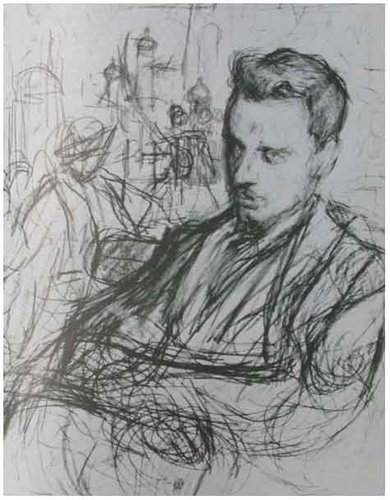Made of Books is a monthly column (partly inspired by hero Roxane Gay) where Christina discusses writing that has been meaningful to her, in one way or another.
I first read Rainer Maria Rilke’s Letters to a Young Poet at a time of transition. I had recently finished college and scraped together two part-time jobs to pay rent. Other kids had ambitions to go to grad school, or they were moving in with their partners, or getting jobs in their field. I had no field—only a undesirable history degree—and without school ahead of me anymore I felt myself floundering.
I wanted to make some kind of decision about my new adult life, to actively choose to do something to move forward instead of getting a job at a mall because I needed money and working with my friend would be fun. So I sought advice in book form. The page allows time and space to open up, and it was easier to feel vulnerable with a book because a book doesn’t know you, has no expectations for what you supposedly are, or for how you should be.
I sat in a cafe and read Rilke’s ten letters to young poet Franz Xaver Kappus, underlining sentences, sometimes whole paragraphs with a pencil and jotting blurry notes in the margins. Rilke’s language was intense and beautiful and earnest, unprotected by any layer of irony and unlike the contemporary, plot-driven novels I usually devoured.
I had long nurtured the idea of wanting to be some kind of writer for so long, I tried to soak in all of Rilke’s advice I could. He was demanding and he demanded you ask yourself difficult questions: “. . . search of the reason that bids you write; find out whether it is spreading out its roots in the deepest places of your heart . . .”
Something within me clicked into place after I read that line. This, of course, didn’t magically get me my dream job—and it would be many months yet before I left those part-time jobs— but it did give me more confidence in myself and the courage to address those big life questions, those what-am-I-doing-anyway type questions. That reassurance meant the world to me when everything else was so unclear.
Beyond writing and making art, it is the thoughtful courage in Rilke’s letters that continues to resonate, even more so now than when I was a confused graduate. Having moved to a new city and found a good job and made a good stable life for myself, it would be so easy to trundle onward, unthinking. The film Kissing Jessica Stein featured a line from Rilke where he warns about getting stuck in patterns and alludes to the courage needed to explore new paths.
For it is not inertia alone that is responsible for human relationships repeating themselves from case to case, indescribably monotonous and unrenewed; it is shyness before any sort of new, unforeseeable experience with which one does not think of oneself able to cope.
Though Rilke writes about the necessity of solitude, of the mental space needed to make art, he reminds us too that shunning other experiences out of fear, shyness, or whatever, is not a way to live. Learn from everything, even those terrible, painful thing like grief and sadness. Live “broadly,” he says. We are capable of so much.
* Drawing of Rilke via wikipedia






I literally was talking to a friend about both searching for purpose in life and the fear of inertia in our lives just last night. Timing is everything, I suppose – even for universal philosophical concerns.
Excellent read as usual, wot wot.